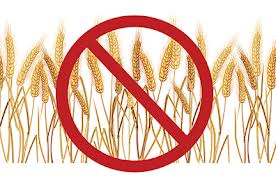|
*One man's Wheat is another man's Poison
If you are following a gluten-free diet and still not feeling well, you may need to eliminate all grains. Thankfully there are food companies hip to this and recipe books to help as well. In her book, “Going Against The Grain”, Melissa Diane Smith makes a sharp statement, “Grains may seem the staff of life, but they’re really scythes that insidiously whittle away most people’s health.” Included in her list of health problems associated with our pasta infused diets are:
*Inflammation Today we are hearing a lot about inflammation being the underlying cause of disease. We are not just what we eat, but more importantly what we digest and assimilate. If grains are causing irritation and gut inflammation they are contributing to ill health. After partially digested food compounds pass through a compromised intestinal lining into the bloodstream and to tissues, they cause irritation and inflammation. *Testing Negative for Celiac and wheat but.... If you’ve had allergy tests done and they came out negative for foods you know give you a problem, don’t be discouraged or duped by these limited results. Dr Ronald Hoffman eloquently states, “The more sophisticated belief that it is not individual foods themselves but the byproducts of ingestion of certain foods that cause intestinal problems is fast replacing the concept of food allergy”. You can test negative for celiac disease, but still be gluten intolerant. In my personal case history, I tested negative for celiac disease but I am extremely gluten intolerant and allergic to wheat. I have gastrointestinal distress and upper respiratory symptoms including an immediate irritated throat and cough. *Caveman Cuisine It almost sounds like heresy to promote the elimination of grains especially in the USA where we have the wheat belt and our patriotic ‘amber waves of grain’. The USDA food pyramid guidelines make grains the most important food group and suggests intake of 6-11 servings of grains per day. Grains however are relatively new with their introduction 10,000 years ago during the Agricultural Revolution. The Paleolithic diet that predates agriculture supports a low grain diet and purports the use of nut and bean flours in modern recipes as substitutes. “Even if you believe that Paleolithic people ate a mostly plant-based diet, Smith contends, “The important thing to understand is that their diet contained virtually no grains.” The carbohydrates in our hunter-gatherer ancestor’s diet came entirely from unrefined sources, keeping their blood sugar levels within normal range. With the introduction of grains, especially flour products came increased rates of obesity, diabetes and heart disease. *Specific Carbohydrate Diet The original celiac diet prescribed by Dr. Sidney Haas from New York’s Columbia University in the 1920’s was the Specific Carbohydrate Diet. This dietary regimen omitted all grains and some complex carbohydrates like potatoes and milk. Unfortunately, by the 1960’s the less restrictive gluten free diet took center stage and became the official diet for celiacs. However, a 2002 study conducted at the Mayo Clinic and published in the American Journal of Gastroenterology found that 18 % of participants with celiac disease were completely unresponsive to the gluten-free diet. According to Elaine Gottschall author of “Breaking The Vicious Cycle”, the damaged celiac gut can’t digest certain carbohydrates including grains. The undigested carbohydrates lead to fermentation in the intestines causing the accumulation of harmful bacteria and further intestinal damage and diarrhea. The Specific Carbohydrate Diet has yielded very positive results for those also suffering from Crohn’s disease, ulcerative colitis, and irritable bowl disease. According to functional medicine doctors some of the hard to treat symptoms of autoimmune diseases like fibromyalgia, psoriasis, rheumatoid arthritis are responding positively to a lower carbohydrate and grain-free dietary protocol. The immune system becomes healthier and less reactive as intestinal toxicity decreases and intestinal health increases. There is a definite and measurable cause and effect. *Cookbooks & Products
1 Comment
|
AuthorMary Ann Reidy, M.S. Clinical Nutritionist ArchivesCategories |

 RSS Feed
RSS Feed